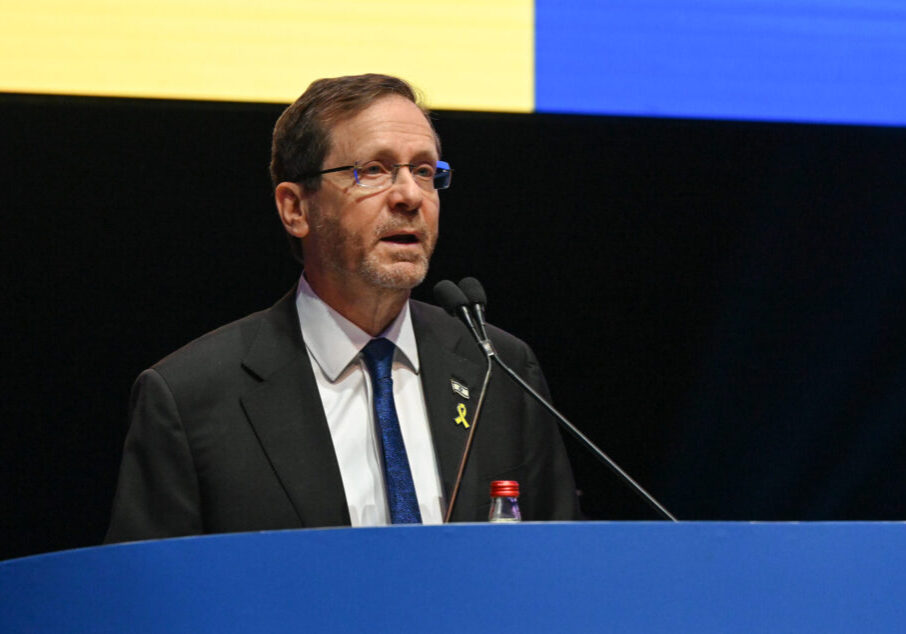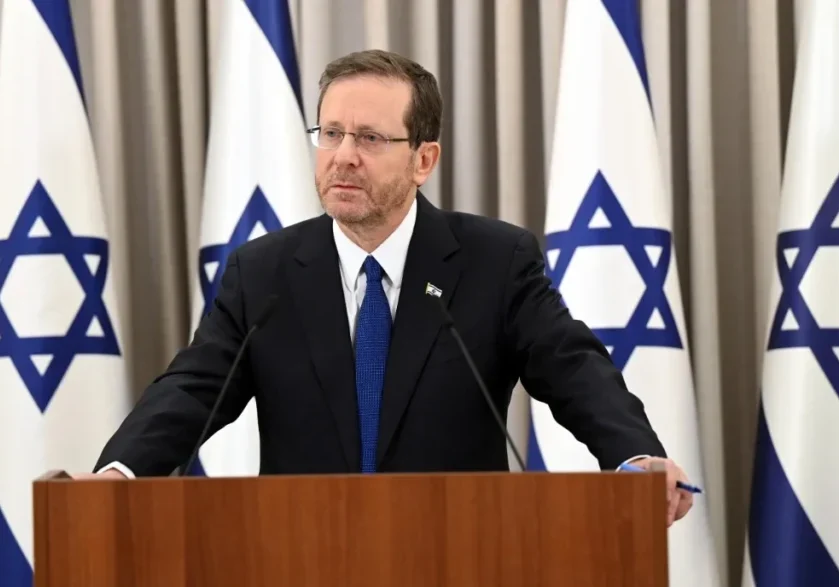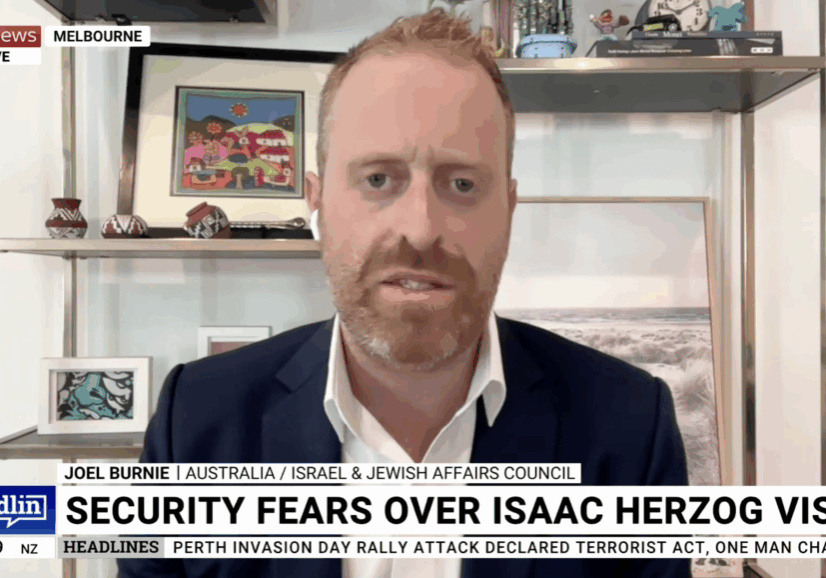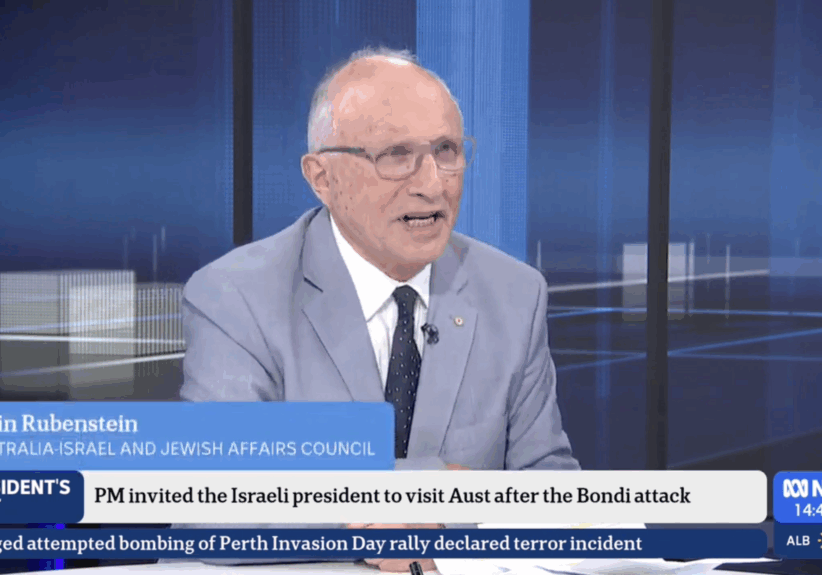Australia/Israel Review
How Sharon the divider united Israelis
Jan 29, 2014 | Yossi Klein Halevi
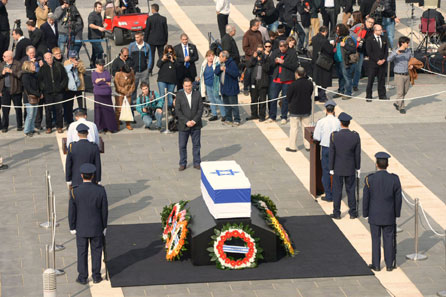
Yossi Klein Halevi
In the plaza before the Knesset, a thin line of mourners slowly passed the flag-covered coffin of Ariel Sharon. An old man in a long white beard and big black kippah saluted. Another old man brought a single rose. Yet another came wrapped in a giant Israeli flag. Among them were veterans of Sharon’s commando Unit 101 from the 1950s, the armoured and infantry units he commanded in Sinai in 1967, the paratrooper brigade he led across the Suez Canal in 1973 to win the Yom Kippur War. The cold, depleted Jerusalem afternoon belonged to them.
I had expected multitudes. But Israelis had gotten used to Sharon’s absence; if anything, his release from the body after eight years of coma came as relief. Still, some of us felt the need to personally say goodbye and thank the man who had devoted his life to trying to keep the Jews safe. That I would join a mourning procession for Ariel Sharon would have once seemed to me inconceivable. Yet there I was, honouring the memory of a man whose impact on Israel I had once regarded as devastating.
The Israel that I moved to as a new immigrant in the summer of 1982 was the Israel of Ariel Sharon. As Defence Minister, he had just led Israel in the invasion of Lebanon, the first war Israel had initiated without a sense of impending existential threat. It was a summer of firsts. For the first time, Israel was besieging and bombing an Arab capital – Beirut. For the first time, Israel was fighting an asymmetrical war against terrorists embedded in urban neighbourhoods, and the civilian casualty rates were rising.
And for the first time, Israelis were failing to unite behind a military operation; in fact, it was actually inciting the deepening divisions between them. Entire reservist units would return their equipment after coming back from stints in Lebanon and proceed directly to demonstrations in Jerusalem. Israelis shouted at each other on the streets, denouncing political opponents as enemies of the Jews, betrayers of Jewish history. In Sharon’s Israel, existential fears, rather than being directed at external enemies, were now directed against one’s fellow Israelis.
And then – Sabra and Shatilla, the massacre by Israel’s Phalangist Christian allies of hundreds of Palestinians in Beirut refugee camps. No, Israel wasn’t directly responsible, and Sharon wasn’t the murderer that left-wing Israelis accused him of being. Yet somehow the massacre seemed a fitting culmination of Israel’s most sordid war. But it didn’t end there. On Feb. 10, 1983, the Kahan Commission, appointed by the government to investigate Sabra and Shatilla, found Sharon guilty of negligence and recommended removing him as Defence Minister.
That night, Peace Now demonstrators marched to the Prime Minister’s office in Jerusalem, where the Cabinet was meeting in emergency session. I heard a bulletin on the radio: A grenade had just been thrown at Peace Now demonstrators, and one protester was dead. I rushed to the scene. There was still blood on the pavement. Though the Peace Now protesters had dispersed, several right-wing counter-demonstrators lingered, chanting slogans in support of Sharon, as if nothing had happened.
A Jew was killed here tonight, I said. Who sent you here, one of them replied, Shimon Peres? His friends laughed. What demons, I wondered, were being unleashed – however inadvertently – by Ariel Sharon?
Today, though, I mourn Sharon as one of our greatest leaders. I voted for him as Prime Minister and came to see him as the leader of my camp: the Israeli centre. However improbably, Sharon, stalwart of the right, was the first Israeli politician to intuit the end of the country’s left-right schism and its replacement with a new centrist majority that agrees with the left about a two-state solution, but also agrees with the right about the absence of a credible Palestinian partner for peace.
In early 2001, when Sharon took over as Prime Minister, terror attacks were happening on an almost daily basis; for the first time since 1948, the home front had become the actual front. Israelis avoided congregating with fellow citizens, fearful of attracting suicide bombers. The experts insisted there was no military solution to this level of terror. Sharon insisted otherwise.
As an elder statesman, Sharon had learned the lessons of his failures in the Lebanon War. He understood that a democracy cannot win against terrorists unless its people are united. And so Sharon set about ensuring that, this time, the entire country, from left to right, would support him in war. He did so, initially at least, by holding his fire. As atrocity followed atrocity, Sharon remained oddly, maddeningly, restrained. A suicide bomber killed close to two dozen young Russian immigrants in a Tel Aviv discothèque, and still Sharon failed to act decisively.
What’s happened to the old Arik, frustrated Israelis wondered. Restraint can also be a form of strength, Sharon replied enigmatically. Even left-wing Israelis began demanding that Sharon respond – and that was precisely what he was waiting for. He found his moment with the Passover massacre – the terror attack on a Seder in the Park Hotel in April 2002 that left 30 dead and injured 140 more. Sharon mobilised the army, and the response was overwhelming: Many reservists who weren’t called up appeared anyway, demanding to fight. Within two years the Intifada was over. It was arguably Sharon’s greatest victory. And he won it by recognising that effective use of power depends on forging national consensus.
Sharon’s life is the story of the Jewish return to power. Born before WWII, he was the child created by Jewish extremity. His excesses, and his correctives, reflect our collective struggles in search of balance, as we moved from the Holocaust to sovereignty and then to seemingly endless siege. Sharon divided and united, built and destroyed – and he sometimes destroyed what he himself built. The father of the settlements was the only Israeli leader to dismantle settlements – twice, in Sinai in 1982 and then in Gaza in 2005, thereby proving that only the pragmatic right could effectively challenge the ideological right. He initiated the founding of the Likud in 1973, convincing disparate right-wing parties to join together in a coalition that eventually unseated the Labor Party. And then, as Prime Minister, when the Likud failed to support his planned withdrawal from Gaza, he turned against the party he had created and formed a new rival, the centrist party Kadima – “Forward”.
In fact there was a pattern behind those seeming contradictions. Sharon was not a peacemaker; his mission was to teach the Jews how to survive in the Middle East. He was the leader who showed us a way out of Israel’s dilemma – an inability to maintain the occupation and an inability to find a worthy partner for peace. That was the real significance of the unilateral withdrawal from Gaza: Israel would determine its own borders, without waiting for an illusory partner. What left and right never quite understood about Sharon was his essential pragmatism. Whatever he believed would make Israel safer, better able to survive as the lone non-Arab state in the region, became absorbed into his worldview.
I asked my friend Arik Achmon, a lifelong member of the Labor Party who served with Sharon in the paratroopers beginning in the 1950s and whose story I told in my recent book Like Dreamers, what he most admired about his former commander.
Achmon executed Sharon’s daring and successful plan to cross the Suez Canal during the Yom Kippur War in 1973, bitterly opposed Sharon’s settlement building, and finally advocated for the idea of unilateral withdrawal from the territories that Sharon himself implemented.
“The louder people around him talked, the quieter his tone became,” Achmon replied. “His very presence in battle calmed the atmosphere.”
Yossi Klein Halevi is the author of Like Dreamers: The Story of the Israeli Paratroopers Who Reunited Jerusalem and Divided a Nation. He is a senior fellow at the Shalom Hartman Institute in Jerusalem. This article is reprinted from Tablet Magazine, at tabletmag.com, the online magazine of Jewish news, ideas, and culture. © Tablet magazine, reprinted by permission, all rights reserved.
Tags: Israel


